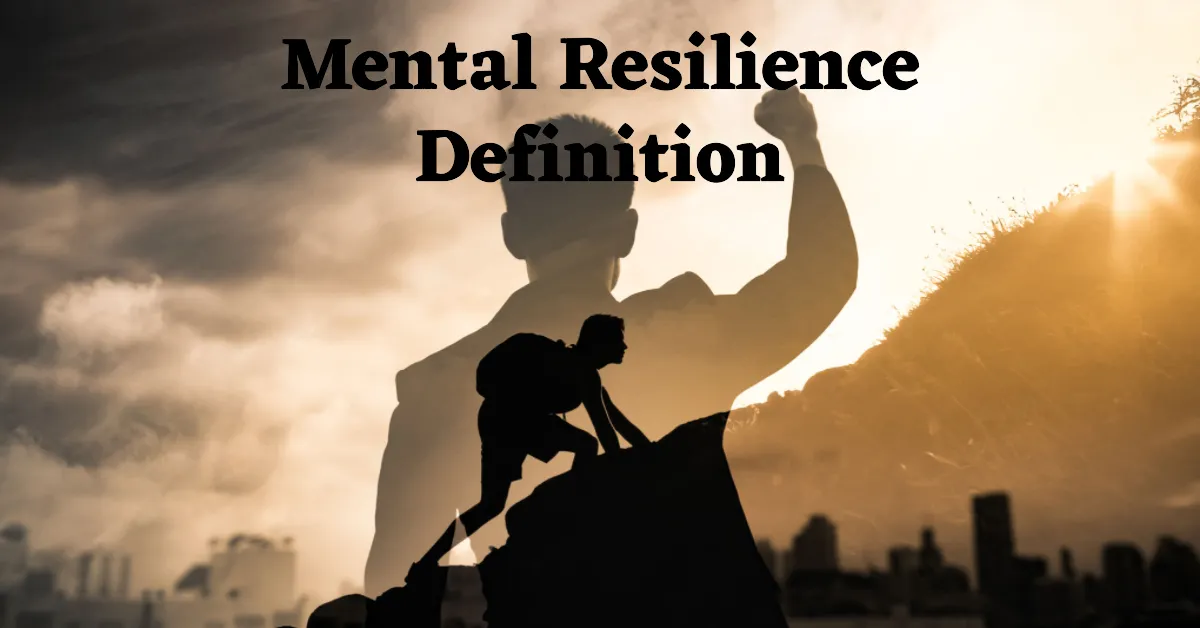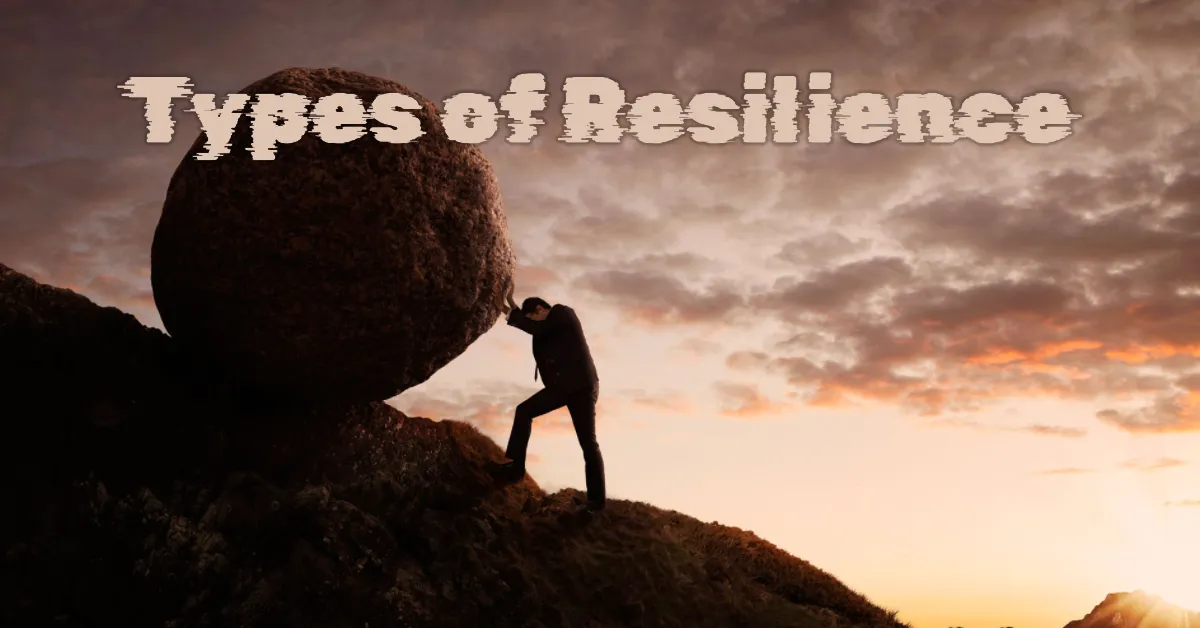Did you know that most people bounce back from adversity not because they’re lucky, but due to their mental resilience? That’s right, it’s your inner strength that gets you through life’s toughest challenges. You’ve probably wondered what mental resilience is and how you can build it. Well, don’t worry! This article will provide a comprehensive insight into the world of mental resilience. From understanding its essence to identifying its different types in various areas of life – we’ve got it all covered. We’ll also delve into the amazing benefits of being mentally strong and provide practical ways to develop your own mental resilience. So gear up, as this journey promises to be enlightening and empowering for anyone looking forward to building their inner fortitude.
Table of Contents
Key Takeaways
- Mental resilience has numerous benefits including improved physical wellbeing, reduced risk of heart disease, boosted immune system, enhanced sleep patterns and energy levels, and positively impacted cognitive abilities.
- Ways to develop mental resilience include positive thinking, cognitive reframing, optimism, affirmations, stress management, mindfulness techniques, regular physical activity, healthy lifestyle choices, and learning from failures.
- Techniques to build mental strength include working with a coach, learning from failures, mastering your inner dialogue, mind programming, neuro-linguistic programming (NLP), and meditation.
- Building mental resilience can lead to thriving instead of just surviving and achieving a happier life.
What Is Mental Resilience?

Mental resilience is your ability to mentally or emotionally cope with a crisis or bounce back from adversity, and it’s not the same as mental toughness which implies an emotional hardness rather than adaptability. So, why is psychological resilience so important? Well, it’s the key to handling stress, overcoming hardship, and ultimately becoming stronger and more capable in the face of life’s uncertainties.
Mental Resilience Definition
In life’s tumultuous journey, it’s our ability to bounce back from adversity – known as mental resilience – that truly defines us. You can think of mental resilience as the strength and speed of our emotional immune system. It’s not about avoiding stress or hardship, but rather developing the toughness to weather them and grow in the process.
Just like a muscle, you can strengthen your mental resilience with practice. It involves maintaining a positive mindset, managing emotions effectively, adapting to changes efficiently, and rising from setbacks stronger than before. It’s about learning how to cope with life’s inevitable ups and downs in a healthy way.
Remember: mental resilience isn’t just surviving; it’s thriving despite the odds. So embrace challenges as opportunities for growth and keep forging ahead!
Mental Resilience vs Mental Toughness
You might wonder about the difference between bouncing back from adversity and having the grit to push through it – that’s where understanding mental resilience versus mental toughness comes in.
- Mental Resilience is your ability to recover quickly from difficulties; it’s like a psychological immune system.
- Conversely, Mental Toughness involves your capacity to withstand challenging situations without falling apart and persist despite adversity.
- Mental resilience helps you bounce back from setbacks, while mental toughness helps you grapple with them head-on.
- You can develop both qualities simultaneously for optimal performance and wellbeing.
- They’re not mutually exclusive; instead, they complement each other.
Remember: tough times don’t last, but tough people do. Build your strength mentally as much as physically.
Why is Psychological Resilience Important?
Ever wondered why bouncing back from adversity seems to be a game-changer in one’s life? That’s the power of psychological resilience. It isn’t just about surviving tough times but thriving despite them. It can empower you to face challenges head-on and turn setbacks into comebacks.
Here’s how resilience can impact your life:
| Benefits of Resilience | Explanation |
|---|---|
| Improved Mental Health | With resilience, you’re less likely to succumb to stress, anxiety, and depression. You’ll handle emotional turmoil with poise and grace. |
| Enhanced Problem-Solving Skills | Resilience trains your mind to find solutions even in dire situations, keeping panic at bay. |
| Better Physical Health | Emotional wellbeing directly impacts physical health; resilient people often enjoy better overall wellness. |
| Success in Life & Career | Your ability to adapt quickly and maintain positivity helps achieve goals and succeed in various aspects of life. |
Remember, every setback is a setup for an even greater comeback!
The Types of Mental Resilience in Different Areas of Life

As you navigate through life’s challenges, it’s crucial to understand the different types of mental resilience that can enhance various areas of your life. Whether it’s personal development, sports, or business, building a robust mental resilience can help you overcome obstacles and reach new heights. Let’s delve into how cultivating this resilience can transform your personal growth journey, elevate your performance in sports, and propel your success in the business world.
Mental Resilience in Personal Development
Mastering mental resilience manifests magnificently in personal development, making you more capable of managing life’s many challenges. It allows you to cope with stress, bounce back from adversity, and maintain a positive outlook even when situations are difficult.
In your journey toward personal development, consider these three key elements:
- Positive Mindset: Maintain an optimistic attitude and belief in your abilities. Your thoughts shape your reality.
- Problem-Solving Skills: Be proactive in finding solutions to problems instead of dwelling on what went wrong.
- Self-Care Practices: Prioritize your wellbeing by maintaining healthy habits like regular exercise, good sleep hygiene, open mindset, and healthy nutrition.
Remember, it’s not about avoiding hardships but learning how to navigate through them effectively. With mental resilience, you’re not just surviving – you’re thriving!
Mental Resilience in Sports
Shifting gears from personal development, let’s now tackle mental training in the world of sports. This is where robust mental toughness really comes into play. As an athlete, your physical capabilities are undoubtedly crucial, but it’s your mental resilience that often determines whether you sink or swim.
| Mental Resilience Components | Their Importance | Techniques |
|---|---|---|
| Confidence | Believing in yourself fuels performance | Positive self-talk |
| Concentration | Focus maintains direction and effectiveness | Mindfulness exercises |
| Control | Managing emotions prevents burnout | Breathing techniques |
| Commitment | Dedication drives improvement | Goal setting |
By building these components into your training routine, you’re not just working toward being physically fit but mentally unstoppable too. Remember, a champion isn’t made in the ring; they’re merely recognized there. It’s their invisible fight within that truly makes them undefeated.
Mental Resilience in Business
In the bustling world of business, your mindset can often be the deciding factor between success and failure. It’s not just about having a great idea or being in the right place at the right time – it’s also about being able to weather storms and bounce back from setbacks.
Having mental resilience means:
- Not letting failures define you but learning from them instead.
- Staying focused on your goals even when faced with challenges.
- Maintaining a positive outlook, knowing that tough times pass.
- Understanding that stress is part of the process and managing it effectively.
So keep pushing forward, building your mental resilience as you go. With every challenge overcome, you’re not only growing your business but also strengthening yourself. Remember, true success comes not just from achievement but also from the ability to endure.
The Benefits of Being Mentally Strong

You’re probably aware that being mentally strong can have profound effects on your life, but did you know it can improve not only your mental wellbeing but also your physical health and cognitive performance? It’s true! With improved mental resilience, you’ll likely experience heightened self-esteem and reduced stress levels, stronger immunity, and better sleep, plus sharper focus and decision-making abilities.
Improved Mental Wellbeing
Embracing mental resilience can lift your spirits, lighten your burdens, and ultimately lead to a healthier and happier mentality. It’s not just about bouncing back from life’s challenges; it’s about learning from them, growing stronger, and becoming more adaptable. This shift in mindset doesn’t come overnight but it’s worth the effort.
When you’re mentally resilient, you’re better equipped to handle stress and adversity. You’ll find that setbacks don’t shake you as they once did. Instead of feeling overwhelmed by problems, you’ll see them as opportunities for growth and self-improvement. This positive outlook improves your overall mental wellbeing.
Remember – building mental resilience isn’t a sprint; it’s a marathon. Take small steps every day toward strengthening your mind and watch how it transforms your life for the better!
Improved Physical Wellbeing
Believe it or not, your physical wellbeing can soar to new heights when you start nurturing your mind’s resilience. It’s a game-changer. Building mental resilience isn’t just about bouncing back from life’s challenges; it also improves your physical health.
Consider these three key areas:
| Mental Resilience | Physical Impact | Benefit |
|---|---|---|
| Stress Management | Lowered blood pressure | Reduced risk of heart disease |
| Positive Thinking | Boosted immune system | Less likelihood of falling ill |
| Emotional Control | Improved sleep patterns | Enhanced energy levels |
You see, stress can lead to high blood pressure and weaken the immune system. Positive thinking builds immunity, while emotional control fosters better sleep. So, don’t overlook mental resilience; it’s a vital tool for promoting both mental and physical wellness. Let’s get stronger together!
Improved Cognitive Functioning and Performance
As you foster mental resilience, not only does your physical wellbeing improve, but it also positively impacts your cognitive abilities. Embracing mental resilience can enhance your brain’s performance, enabling you to think more clearly and make better decisions. The ability to bounce back from adversity or stress can be a powerful tool in boosting productivity and efficiency in your daily tasks. It helps you focus, improves memory retention, and sharpens problem-solving skills. Imagine being able to process information faster, recall details accurately, and solve problems effectively no matter the situation! That’s the power of improved cognitive functioning that comes with building mental resilience. So keep persevering and strengthening your inner fortitude – it’s an investment that pays off in both mind and body!
Ways to Develop Mental Resilience

You’ve understood the importance of mental resilience, now let’s delve into how you can develop it. From working with a coach, and harnessing your inner dialogue, or adopting positive thinking, to cognitive reframing and mastering stress management strategies, there are numerous tools at your disposal. Discover the transformative power of learning from failures, mind programming, Neuro-Linguistic Programming (NLP), and meditation – each providing a unique path toward cultivating a formidable mental strength.
Working with a Mental Coach
Embarking on a journey of personal development and self-improvement isn’t a walk in the park. It’s a rugged climb up a rocky hill. Therefore, one of the most beneficial steps you can take toward building mental resilience is working with a professional mental coach.
Here’s why:
Firstly, a mental coach is like a firm hand at your back, gently pushing you onward. They aid you in identifying your mental blocks and weaknesses, the unseen hurdles that keep you from moving forward. And guess what? They don’t stop there. Having located these barriers, they guide you in developing effective strategies to overcome them.
Secondly, mental coaches assist in shifting your perspective. Easier said than done, right? They help reframe stressful situations, allowing you to see them not as insurmountable obstacles but as opportunities for personal growth. This, trust me, is a significant game-changer in building resilience.
Another important aspect is accountability. It’s easy enough to trace a roadmap to better mental health, but walking the talk is where the challenge lies. Your mental coach won’t let spin your wheels. If you tend to easily let yourself off the hook, a mental coach provides that necessary accountability to keep you on track.
Furthermore, mental coaches serve as a trusted sounding board. They are there to listen, and provide insight and feedback, which are all invaluable in self-improvement.
With a mental coach, you’re not going down this road alone. They’re in the trenches with you, offering support, understanding, and above all, tools for building mental resilience. They’re your partners in resilience, empowering you to become mentally tougher and healthier. You’ll start tackling those rocky hills like they were molehills, seeing each climb not as a setback but as a way to reach new heights of personal growth and mental strength.
Inner Dialogue and Positive Thinking
Harnessing the power of positive thinking can significantly improve your mental resilience, transforming how you handle stress and setbacks. Your inner dialogue plays a crucial role in shaping your perception of the world and yourself. If it’s negative, it can undermine your resilience, but if it’s positive, it can boost your mental strength.
Consider these three aspects of positive thinking:
| Aspect | Description | Benefit |
|---|---|---|
| Self-Talk | This is the ongoing stream of thoughts that runs through your mind | It helps maintain a clear focus |
| Optimism | This involves looking for the good in any situation | It reduces stress levels |
| Affirmation | These are positive statements about yourself or the situations you face | They boost self-esteem and drive |
Remember, fostering a hopeful outlook isn’t ignoring reality; rather it’s viewing challenges as opportunities to grow and learn.
Cognitive Reframing
Consider cognitive reframing as your secret weapon in life’s battles – it’s not about painting a rosy picture of every situation, but rather changing the lens through which you view your challenges. It’s training yourself to see obstacles as opportunities, setbacks as stepping stones, and rejection as redirection.
Cognitive reframing is like swapping out a cracked lens for one that helps you see with clarity and perspective. It’s a powerful mental tool that can aid in building resilience and mental strength. By consciously shifting your mindset, you can transform negative thoughts into positive ones. This isn’t about denying reality; it’s about choosing how to interpret it.
Remember, it’s the way you choose to frame your experiences that shapes your reality. So arm yourself with cognitive reframing and redefine what resilience means to you!
Stress Management Strategies
Moving on from cognitive reframing, it’s essential to understand that managing your stress effectively plays a vital role in building mental resilience. Stress is inevitable, but how you handle it can drastically affect your mental strength.
- Mindfulness: Start incorporating mindfulness techniques like meditation, deep breathing, or yoga into your daily routine. These practices not only help reduce stress but also improve focus and self-awareness.
- Physical Activity: Regular physical activity stimulates the production of endorphins – the body’s natural mood lifters. It helps you keep a balanced perspective toward challenges.
- Healthy Lifestyle Choices: Remember to eat healthily, get sufficient sleep, and limit caffeine and alcohol intake. Your lifestyle choices directly impact your ability to cope with life’s ups and downs.
Nurture these habits for better stress management, paving the way for enhanced resilience and mental fortitude.
Learning from Failures
Embracing your failures, rather than fearing them, can be a game-changer in your journey toward personal growth. You see, failure isn’t the end of the road; it’s an opportunity to learn and grow. It’s okay to make mistakes – they’re part of life’s lessons. Each time you stumble, think about what went wrong and how you can avoid similar missteps in the future. Use these insights as stepping stones toward resilience and mental strength.
Remember that every successful person has experienced numerous failures along their journey. Yet, they didn’t let these setbacks define them or deter them from their path. Instead, they viewed each failure as a learning experience that made them stronger – mentally and emotionally. So next time you face adversity, remember: it’s not a setback; it’s a setup for a comeback!
Mind Programming, NLP, and Meditation
Just imagine, through the power of mind programming, NLP, and meditation, you can rewire your brain to break free from limiting beliefs and unlock your true potential! With mental resilience, you’re not just surviving; you’re thriving.
NLP or Neuro-Linguistic Programming lets you change how you think and interact with the world around you. It’s about replacing negative thoughts with positive ones but it also involves advanced psychological hacks and mental conditioning techniques. And it gets better! Mind programming helps embed these new thought patterns deep into your subconscious. Then there’s deep meditation, a powerful tool that cultivates mindfulness and promotes relaxation. In fact, all of these techniques have been described in more detail and thoroughly explained in the book “High-Performance Mindset” which focuses on positive mental conditioning and performance-enhancing strategies for high achievers.
These techniques don’t promise instant results but they offer a path to build mental strength over time. So why wait? Start today! The journey may be challenging but remember, every step forward is a step toward achieving resilience and living a happier life.
Frequently Asked Questions

Q: What does it mean to be resilient and build mental strength?
A: To be resilient means being capable of coping with stressful situations or crises and bouncing back from them. Building mental strength, on the other hand, involves developing psychological toughness to tackle day-to-day challenges, manage stress, and recover from setbacks or adversity. Both are vital for mental wellness.
Q: What are some different types of resilience?
A: Resilience comes in various forms such as emotional resilience, referring to one’s ability to recover from emotional distress; physical resilience refers to one’s capacity to recover from illnesses or injuries; and community resilience which indicates how a community can bounce back from adverse events like natural disasters. Personal resilience is the sum of individual capacities and characteristics that contribute to resilience.
Q: What’s the neurobiology of resilience?
A: Mental resilience is primarily associated with the functioning of certain areas of the brain including the prefrontal cortex, amygdala, and hippocampus, which regulate stress responses, emotions, and memory respectively. Neuroscience research suggests resilience is linked to increased neural plasticity, the brain’s ability to adapt its architecture and function in response to experiences, and better regulation of the body’s stress response, involving complex interactions between neurotransmitters, hormones, and other biological systems.
Q: How can I build resilience and mental toughness?
A: There are many ways to build resilience and mental toughness. This includes taking care of your physical health, maintaining strong relationships for social support, learning and using coping skills, seeking help from mental health professionals or mental conditioning coaches, as well as seeking positive perspectives in challenging life events.
Q: How does social support help build personal resilience?
A: Social support plays a crucial role in building personal resilience. It provides a sense of belonging, security, and community, all of which are beneficial during stressful situations. social support provides resources, advice, or a listening ear, which can promote resilience and help manage stress.
Q: How can I measure my level of resilience?
A: The level of resilience can be measured using various tools like the Resilience Scale. However, resilience is a dynamic process and can change over time. Therefore, it is often recommended to seek guidance from a mental health professional or mental conditioning coach to accurately measure and understand your resilience.
Q: Can children and adolescents develop resilience?
A: Yes, children and adolescents can and should build resilience. Early intervention and learning can enhance a child’s resilience. Parents and educators can help children learn coping skills, assertiveness, emotional recognition, and regulation to contribute to resilience.
Q: How does managing stress relate to becoming more resilient?
A: Stress management is a crucial part of becoming more resilient. When we effectively manage stress, we are better equipped to cope with and recover from adverse situations, contributing to our level of resilience.
Q: What’s the relationship between resilience and mental health?
Being overwhelmed by stress can result in depression and anxiety. Lower resilience and mental toughness levels will help you feel more in control as you will be less likely to dwell on problems. Developing a strong mind can help you stay mentally stable in the face of adversity and strong emotions. Resilience plays an important role in mental health as it can help decrease stress levels, maintain a positive outlook on life, and improve the ability to manage your emotions.
Q: Is resilience associated with mental health conditions?
A: Yes, resilience is associated with mental health conditions. High resilience can protect against the development of certain mental health conditions. On the contrary, a lack of resilience can heighten the risk of experiencing psychological distress and other mental health disorders.
Q: Can resilience help in managing mental health conditions?
A: Yes, resilience can contribute immensely to managing mental health conditions. People with high resilience can typically manage stress more effectively, experience less psychological distress, and can often recover faster from mental health conditions compared to people who lack resilience.
Q: How can I help myself and others to become more resilient?
A: Cultivating resilience involves many strategies like taking care of your physical and mental health, building and nurturing social relationships, developing good coping skills, and seeking help when needed. To help others become more resilient, you can offer social support, encouragement, and promote the use of resources like mental health professionals and mental conditioning coaches. Also, teaching them the ways to build their resilience can be greatly beneficial.
Conclusion

So, you’ve learned what mental resilience is and how to build it. You’re on the brink of a transformation – are you ready for it? Remember, developing mental strength isn’t an overnight journey but the rewards are life-changing. Keep pushing forward, keep growing stronger, and embrace the art of developing mental toughness and resilience. Your future self will thank you for it. Stay tuned because there’s more to come on this exciting journey toward a mentally resilient you!




